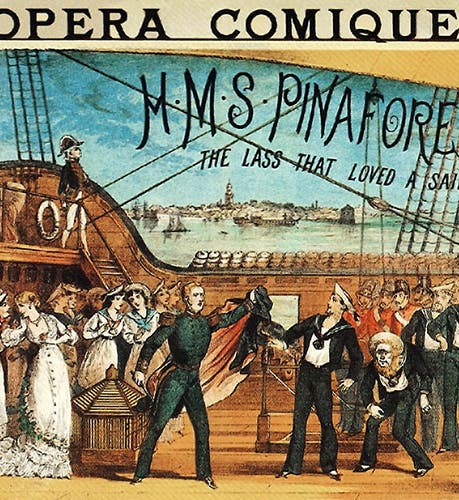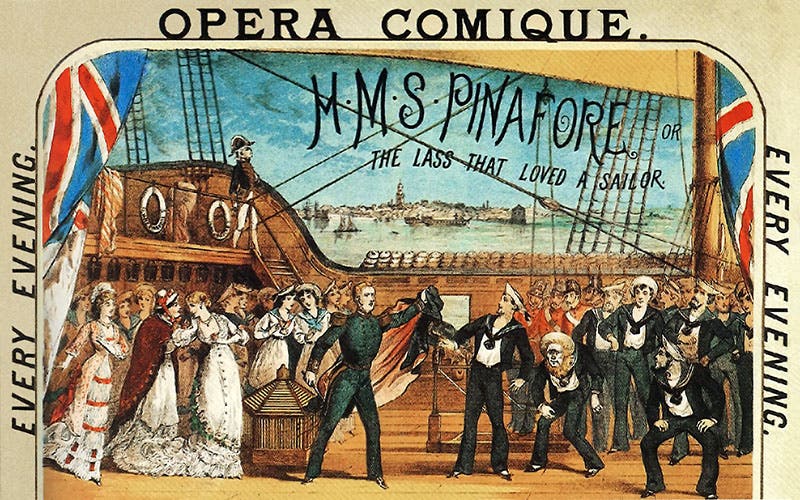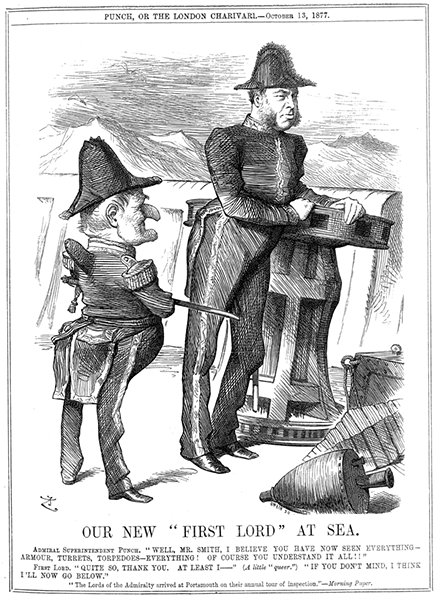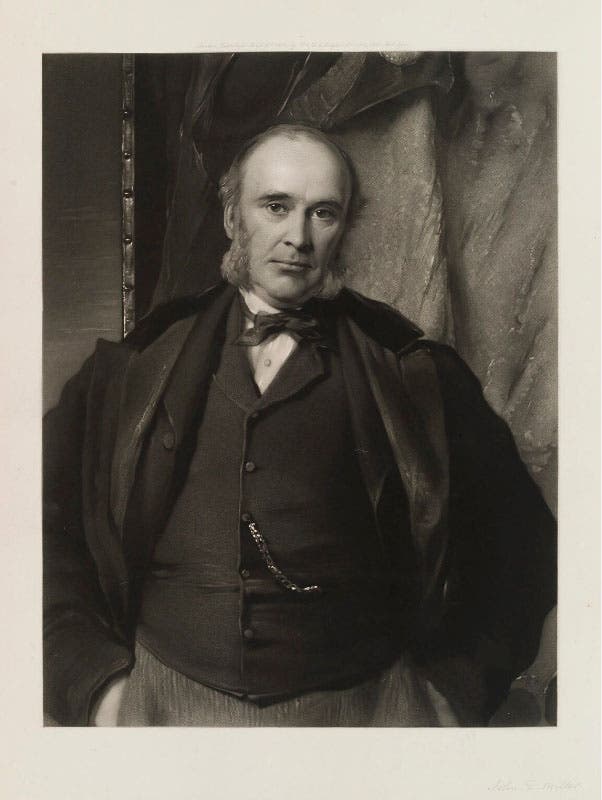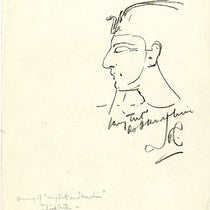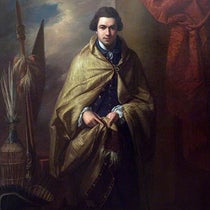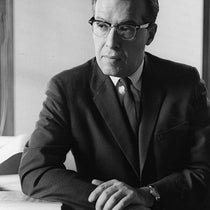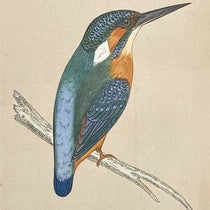Scientist of the Day - William Henry Smith
William Henry Smith, an English bookseller, was born June 25, 1825. Taking over the family firm, he became quite wealthy setting up newsstands in railway stations. He managed to get elected to Parliament in 1868, and then rose in favor so rapidly that he was appointed First Lord of the Admiralty on Aug. 14, 1877.
We have mentioned John Barrow a number of times in these posts; he was Second Secretary of the Admiralty from 1804 to 1845 and spearheaded the move in 1818 to send Royal Navy ships to the Arctic in search of a Northwest Passage. In the British way of management, the Second Secretary (later the Permanent Secretary) was a civil servant, the man in charge, the one who actually knew what he was doing. He reported to the First Secretary, a political appointment, and the First Secretary answered to the five Lords of the Admiralty, presided over by the First Lord. The First Lord was also a political position, granted to someone who pleased the Crown and who might, or might not, know something about ships and sailing. Smith fell into the latter class, having no prior acquaintance with the Royal Navy, and upon his appointment, he was soon the butt of a Punch cartoon by John Tenniel (of Alice's Adventures in Wonderland fame) (second image). The caption says: Admiral Superintendent Punch. "Well, Mr. Smith, I believe you have now seen everything – armour, turrets, torpedoes – everything! Of course you understand it all!!" First Lord. "Quite so, thank you. At least I –“ (a little "queer.") “If you don't mind, I think I'll now go below."
It may have been this cartoon that inspired W.S. Gilbert to shape the character of Sir Joseph Porter in the comic opera he was then writing, H.M.S. Pinafore. In the opera, Sir Joseph is First Lord of the Admiralty, and the suitor of Josephine, the daughter of the Captain of Pinafore, and in his first song, Sir Joseph recapitulates the career path he has taken to get to his lofty position. None of it, as you will see and hear if you watch the video clip, involved ships at sea. The song is called "When I was a Lad,” but it is commonly referred to by a line from the chorus as "The Ruler of the Queen's Navy”. The tune of course was supplied by Arthur Sullivan. Here is Sir Joseph himself, singing his life story, in a production at the Stratford Festival in 2017. For some reason, in this production, the Queen’s Navy has become the King’s Navy, but otherwise, it is a delightful performance. Note the wonderful line, after Sir Joseph has recounted being granted partnership in a legal firm: “That partnership till then had been the one and only ship that I ever had seen.” H.M.S. Pinafore debuted on May 15, 1878, when Smith had not yet been a year in office. In the H.M.S. Pinafore poster (first image), Sir Joseph is the one preening on the upper deck.
In the best tradition of the Peter Principle, Smith went on to become Secretary of State for War, Chief Secretary for Ireland, First Lord of the Treasury, and Leader of the House of Commons. Had he not died suddenly in 1891, he might well have been the next Prime Minster, instead of William Gladstone. It is also of interest that four months after Smith was blistered by Tenniel’s cartoon (and 3 months before the debut of Pinafore), Smith was elected a Fellow of the Royal Society of London, having no scientific credentials whatsoever. The government had no corner on rewarding incompetence, as long as it was wealthy incompetence.
William B. Ashworth, Jr., Consultant for the History of Science, Linda Hall Library and Associate Professor emeritus, Department of History, University of Missouri-Kansas City. Comments or corrections are welcome; please direct to ashworthw@umkc.edu.

